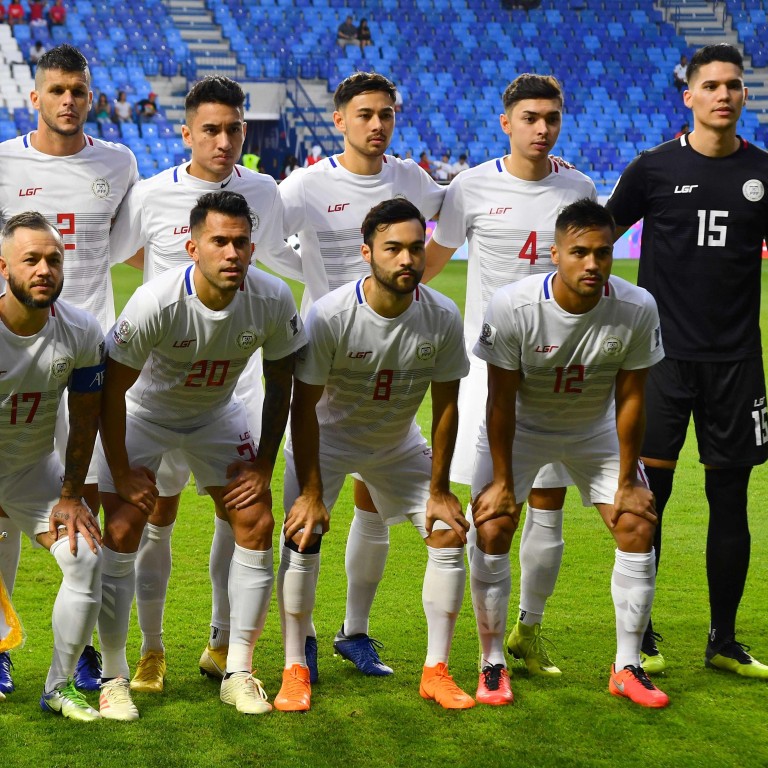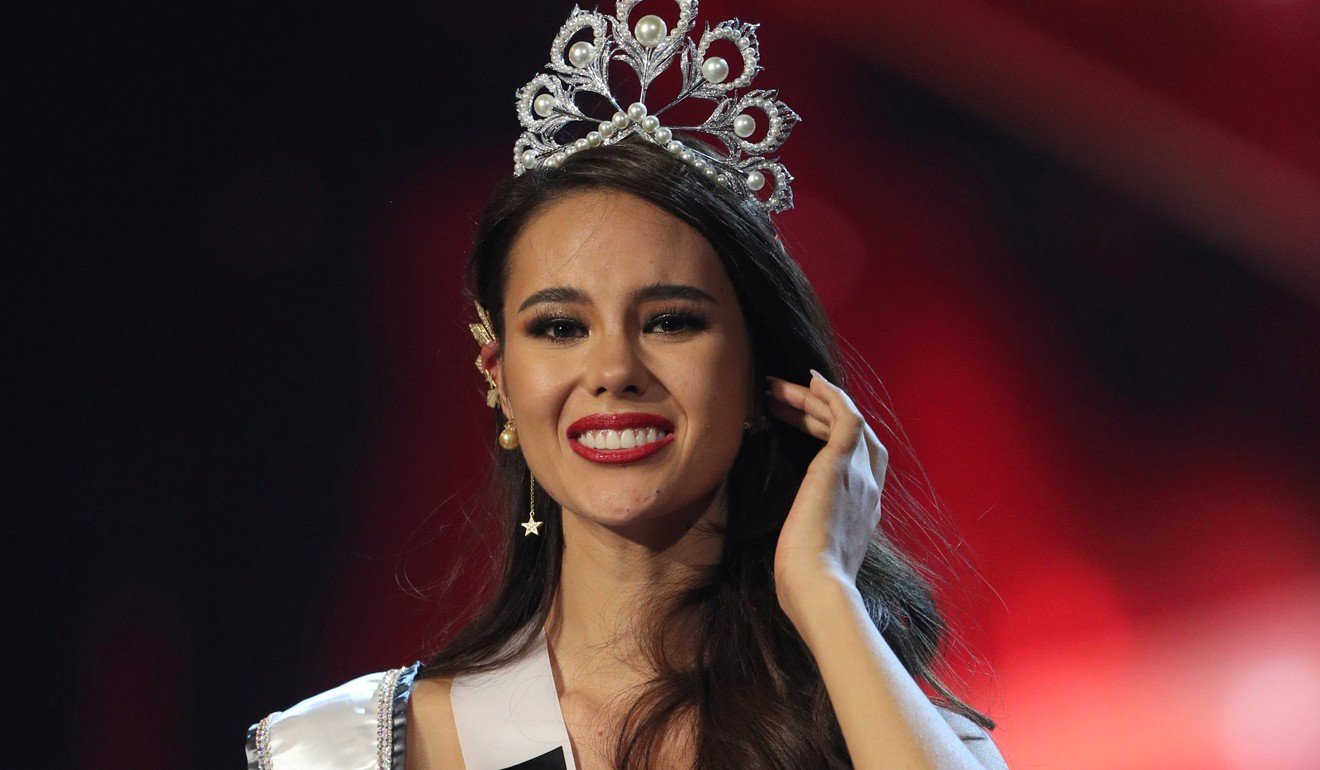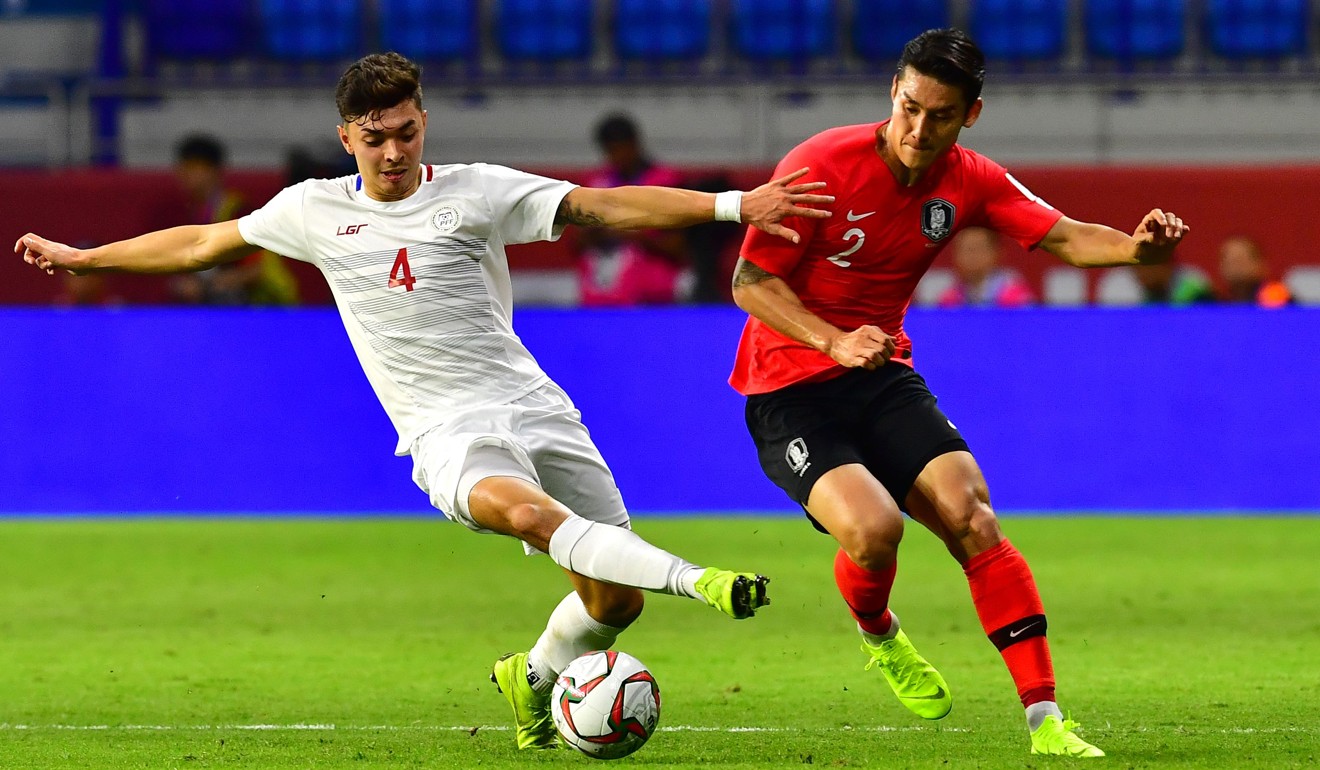
AFC Asian Cup: ‘half-breed’ Pilipinas Azkals symbolise what it means to be Filipino, says former AFC official
- Miguel David says the nation was built on the mixing of blood going back more than a century
- The Azkals made their AFC Asian Cup debut with a 1-0 defeat by powerhouses South Korea
The Philippines, as a nation, was built on “half-breeds” and hopefully their football team can make the most of mixed-blood and “pure” talent to one day become an Asian power, says one local official.
On Monday, the Azkals made their AFC Asian Cup debut by stretching regional powers South Korea before losing 1-0 in the United Arab Emirates – a huge achievement by a team of largely overseas-based players with most them of mixed blood.
“It is a chicken-egg situation,” said Filipino Miguel David, a former Asian Football Confederation official now engaged in social development programmes through sport. “There is no wrong or right, the most important thing is to love the game and the people you meet through it.
“Nobody should have a false sense of entitlement. My country was built by the half-breeds, even politically. I am half-breed. Because half-breeds crave that both sides embrace each other,” said David, who is half Chinese.
All the players who started against South Korea at the Rashid Al-Maktoum Stadium on Monday have at least one non-Filipino parent, with defender Alvaro Silva’s connection to the Philippines through his grandmother on his father’s side. The others have roots in countries such as Germany, Hungary, the United Kingdom and Japan.
The issue of mixed Filipinos came to the fore last month when 24-year-old Catriona Gray, who is Australian-Filipino, won the Miss Universe contest – sparking debate in the country about ethnicity, with her defenders saying no one in the Philippines can claim to be of “true blood” because of a history of mixed marriages going back more than a century.

“The Philippines has a lot of social problems right now, we’re not unique. We’re still a generally hand-to-mouth country with a low savings rate,” said David, whose role at the AFC was to take care of the body’s futsal programme.
“We don’t have a leisure culture like the Americans or Europeans because we need to work harder every day. The Filipinos relate to the Azkals no different than they do to Miss Universe, but they’ll usually hop on to the bandwagon at the latter stages of the tournament [if we get there] and identify when they do something unique.
“For me, the message I am hoping this team communicates is dream and do – both work hand in hand. Football gave us one more platform in life.”

For David and other Filipinos who follow football, the main problem is not so much the ethnicity of the team but fostering interest in the sport among fans back home who are brought up on basketball and boxing.
Despite a thriving sports media scene, only one reporter from the Philippines has travelled to the UAE to cover the team. In addition, fans at home wanting to watch the matches live can only do so through pay TV.
“I wish there were more Filipino journalists covering the tournament, but I guess it is not a priority coverage for some of the media organisations back home,” said Cedelf Tupas, who is covering the event in the UAE for the Philippine Daily Inquirer.
“Football isn’t as big as basketball and it is always a challenge for the sport to get exposure on mainstream media.
“There was a time when the team drew plenty of interest, but with them not winning a trophy or taking so many months in between games, it was hard to get that consistency of interest from the public.

“Basketball is so deeply ingrained in Filipino culture. It is a religion. That’s why what the Azkals are doing right now is remarkable.”
David said the success of “pure-blood” Alphonse Areola, who plays in goal for French giants Paris Saint-Germain, shows that Filipinos of any ethnicity can play the game at the highest level.
He said that while the ethnic make-up of the Azkals helps to promote diversity in their national identity, it is not ideal in terms of building a strong and consistent team. And with their players spread across the world, bringing them together for major events is a problem.
“It’s a logistical nightmare considering we are 7,100 islands with a general lack of infrastructure,” said David.
“Will we do well? Preparations were very far from ideal, and a lot of people locally still believe in the lottery mentality. I wish it were different, but it’s football, and it’s a human game, except for VAR.
“There is really no telling, so enjoy the ride, because all of us have seen a lot of crazy and funny things in football, which is why it’s the beautiful game.”

